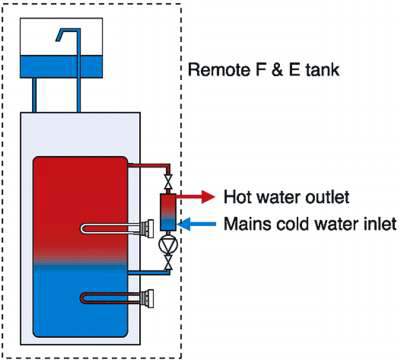Gledhill provides elegant hot-water solution in Manchester

Gledhill’s PulsaCoil hot-water system has minimised the need for structural interaction in three buildings providing 114 apartments on the Paradise Wharf waterfront development in Manchester.
Self-contained electric DHW solutions for 114 apartments in central Manchester, including a renovated Grade II listed warehouse and two purpose-built blocks, are provided by Gledhill’s PulsaCoil system. It was selected for its ease of installation — a single box providing mains-pressure hot water without requiring pressure- and temperature-relief valves, tundishes or run-away pipework — eliminating the need for access to costly service columns. PulsaCoil is based on an energy store heated by two low-power thermostatically controlled immersion heaters that maximise the use of off-peak tariffs. Heat is transferred instantaneously into main-pressure cold water as it passes to a tap. Hot water is delivered at around 53°C and is potable. A tank mounted above the heating unit accommodates expansion, and separate overheat and control thermostats provide a fail-safe function. PulsaCoil therefore does not require a means of run off from temperature or pressure-relief valves, unlike unvented cylinders. Eric Jones, technical director with housebuilder Watkin Jones, explains, ‘The listed status of the renovated Junction Works apartments meant that we were limited in the structural alterations we could make. The PulsaCoil unit has provided one effective solution for all three buildings.’
Related articles:








